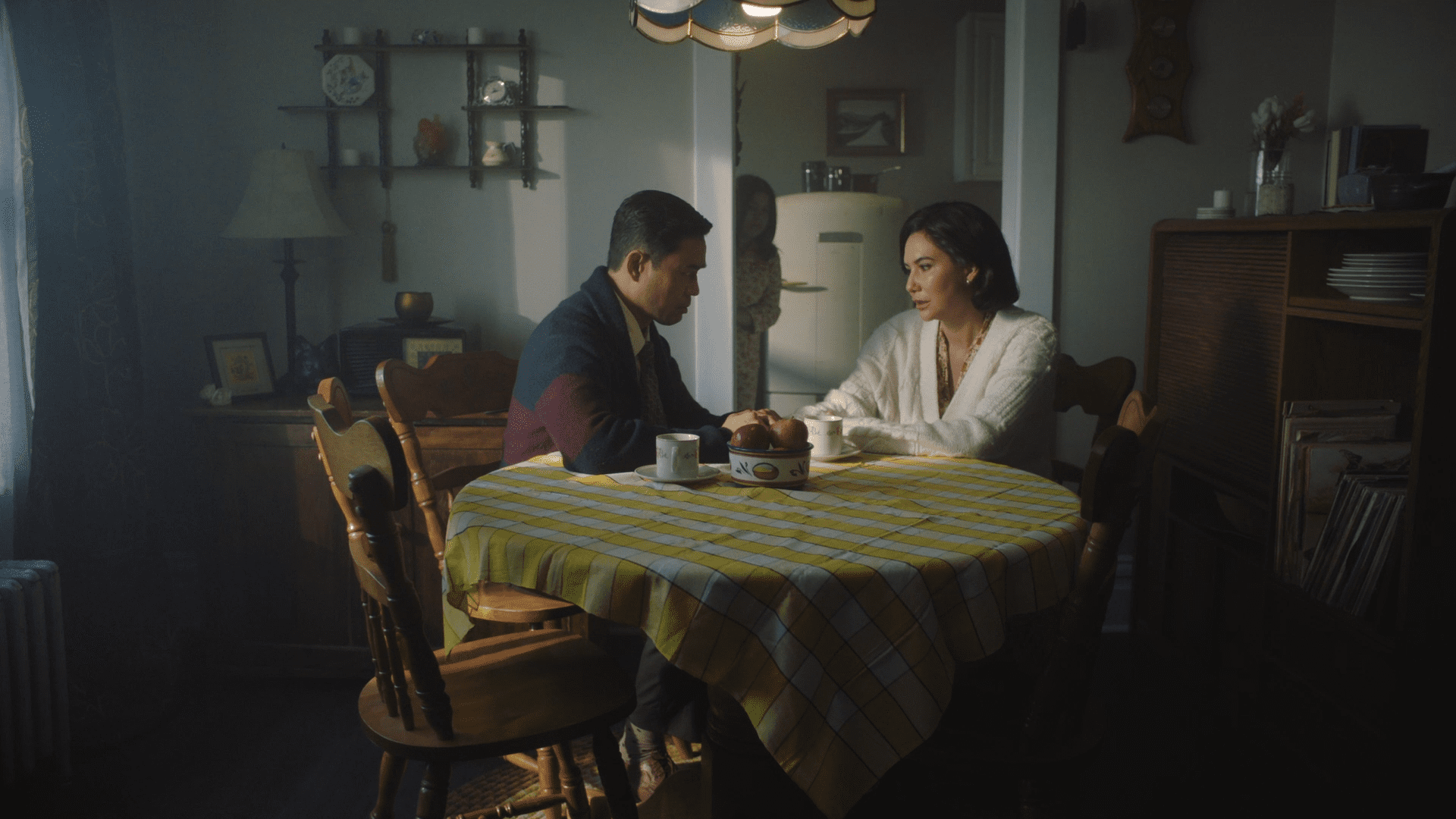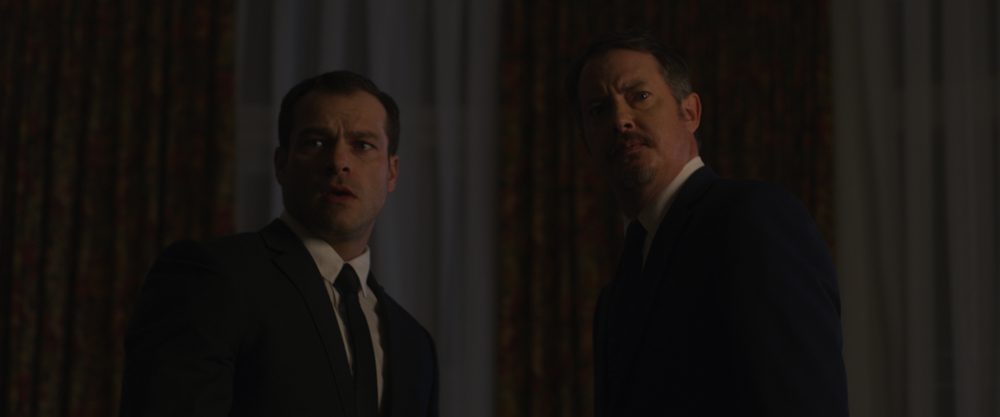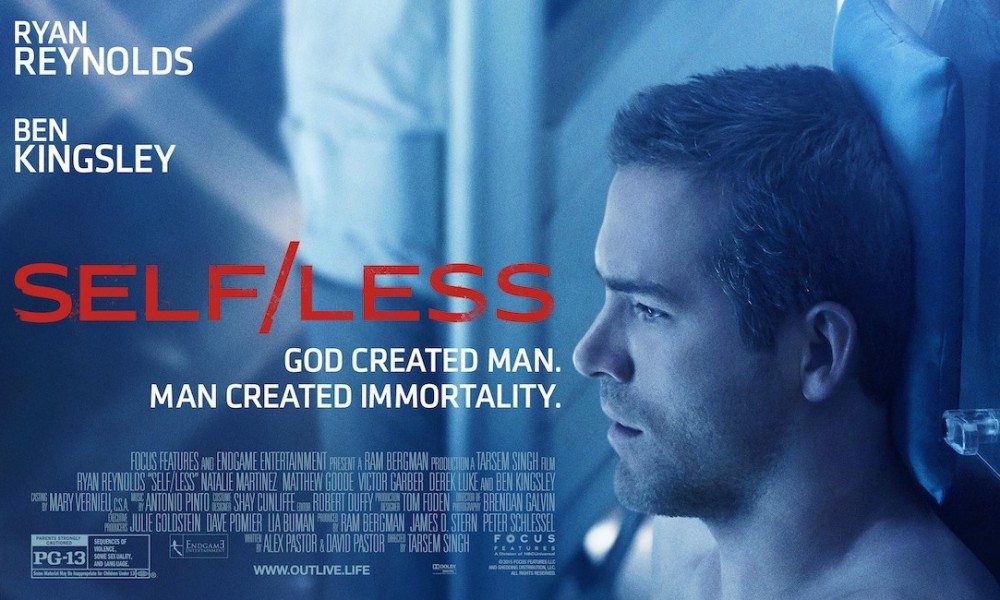 I was hooked by the concepts of?Self/Less?after one look at the trailer. Ben Kingsley’s Damian wants to extend his earthly life, so he buys a spot in a shadowy scientific experiment where his consciousness will be transplanted into another body. He thinks he’s buying a newly cloned figure but what he gets is instead the body of Iraq veteran Mark Hale (Ryan Reynolds), and Hale’s consciousness hasn’t completely vacated the premises. When Damian’s dormant sense of morality surfaces, it draws him into direct confrontation with Dr. Albright (Matthew Goode) and his lethal henchmen. Will the pursuit of immortality and financial wealth be everything Damian hoped for?
I was hooked by the concepts of?Self/Less?after one look at the trailer. Ben Kingsley’s Damian wants to extend his earthly life, so he buys a spot in a shadowy scientific experiment where his consciousness will be transplanted into another body. He thinks he’s buying a newly cloned figure but what he gets is instead the body of Iraq veteran Mark Hale (Ryan Reynolds), and Hale’s consciousness hasn’t completely vacated the premises. When Damian’s dormant sense of morality surfaces, it draws him into direct confrontation with Dr. Albright (Matthew Goode) and his lethal henchmen. Will the pursuit of immortality and financial wealth be everything Damian hoped for?
(Short answer: Of course not.)
To be fair to Damian pre-“shedding” (the film’s verb for the the transplanting personality process), he thinks that his decision is his and his alone. He thinks that no one else is being affected, that no one is getting hurt. But it’s his awareness that there is?collateral damage (repeat to oneself: “there are no victimless crimes) that drives him to track down the origin of the images of his head, that is, Mark’s wife?(Natalie Martinez) and daughter.
Now, we have two sets of memories or personality/experiences competing in the same mind, two men who made bad decisions because they were thinking only of what they needed or thought was best. The plot holes might be big enough to drive through like, what’s the science behind the transplanting? What do we know about how the conscious works (what makes a person – a soul, body, mind, character, etc.?) Why is there never any surveillance video when someone breaks in somewhere? How does Hale’s muscle memory work? Can a man’s chin really break a toilet bowl? But I digress…
The fact is Albright offers Damian immortality. He’s like the devil tempting Jesus in the wilderness, only Damian isn’t Jesus. The ability to buy, purchase, steal, overwhelm – those are the ways he’s succeeded in life. It’s why he can’t relate to his daughter, but he?can?buy himself a new body. It’s the slippery slope that his pleasure and his pain drives him to, regardless of what questions he should be asking and doesn’t, a point Albright is quick to point out later.
The remaining two-thirds of the film (after Damian/Hale break out of Albright’s approved behavioral pattern) are an all-out action chase that is pretty standard for “fish out of water people on the run.” Nothing there is really going to blow your mind from a chase perspective?but… it’s the theological/social/moral issues that really drive the film to be of any interest.
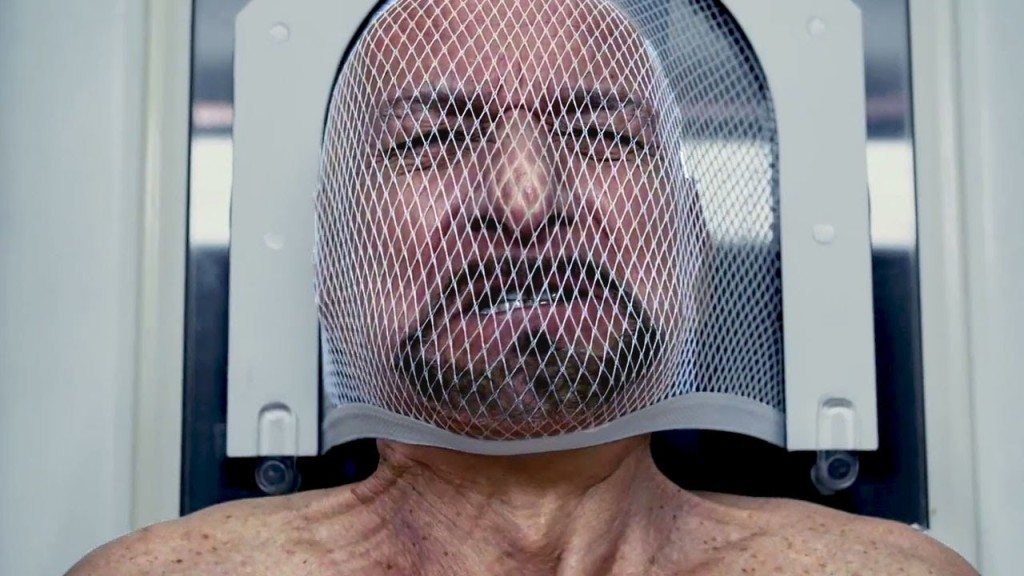 In general, the average human being seems pretty afraid to die, so prolonging our lives has definite attraction, right? This may depend on how old you are, and how “at your peak” you feel that you are. [An older person I saw the film with asked, “who wants to live forever anyway?” The way you answer that may also depend on how you feel about what happens after we die!]
In general, the average human being seems pretty afraid to die, so prolonging our lives has definite attraction, right? This may depend on how old you are, and how “at your peak” you feel that you are. [An older person I saw the film with asked, “who wants to live forever anyway?” The way you answer that may also depend on how you feel about what happens after we die!]
For most of us, we take vitamins, work out, try various diets/meditations/practices to be healthier, usually not because we really want to but because we’re told it will help us live longer. You’ve heard that “everyone wants to go to heaven but no one wants to die,” but I’d argue that few people would acknowledge wanting to die. And yet… there are apparent physical consequences to extending one’s life in the context of the movie, but there are social/moral/psychological ones as well, like…
… Damian has to pump himself with pills to mask Hale’s personality. Taking pills that are not too dissimilar to the pills he takes to fight cancer.
…Damian may have upgraded his body from Kingsley to Reynolds (wrinkly to six-pack?) but he is still estranged from his daughter, and he doesn’t understand her value system.
…Damian recognizes that doing it more (drinking, spending, sex) doesn’t make it better when it’s not in relationship. He’s still alone, and his life is a waste.
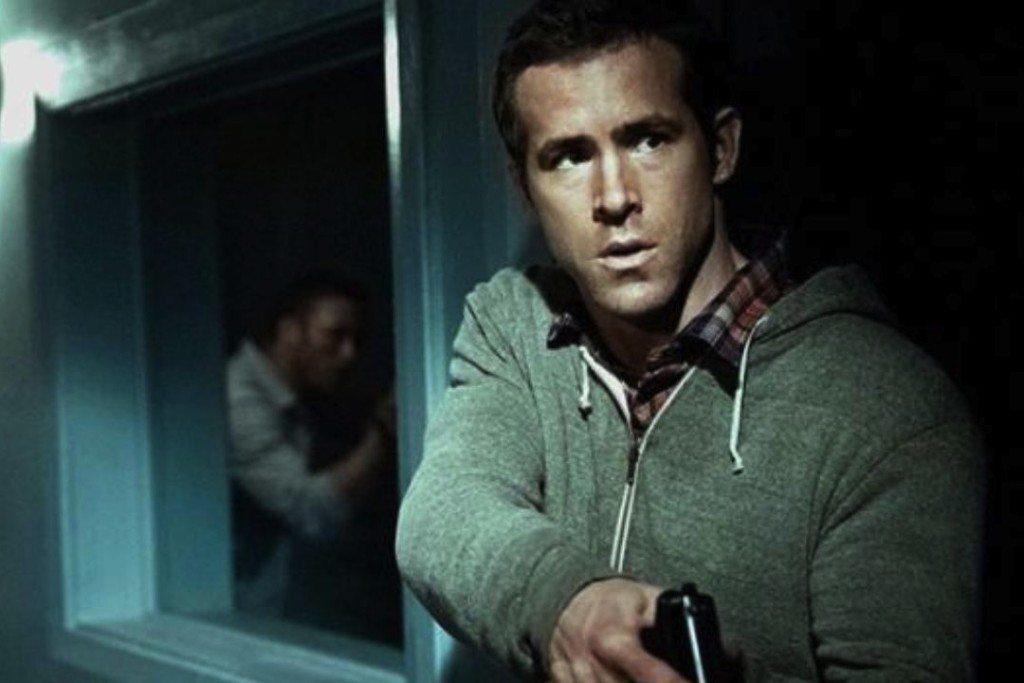 But the truth about?Self/Less, while it’s a warning about exploitation, power, greed, and corruption, it’s also a story about second chances, and finding yourself. Like Scrooge after his visit by the four ghosts [Editor’s note: Check out A Christmas Carol;?Marley, Christmas Past, Christmas Present, and Christmas Future), Damian’s ability to see life from someone else’s perspective, including their pain and loss, let’s him see what he’s been missing and what he has messed up. Damian realizes that more of him means less of Hale, and vice versa. When he decides to lay his life down, to defend Hale’s family, it changes things, and in the process, he saves the part of himself that Albright can’t help him with: his soul.
But the truth about?Self/Less, while it’s a warning about exploitation, power, greed, and corruption, it’s also a story about second chances, and finding yourself. Like Scrooge after his visit by the four ghosts [Editor’s note: Check out A Christmas Carol;?Marley, Christmas Past, Christmas Present, and Christmas Future), Damian’s ability to see life from someone else’s perspective, including their pain and loss, let’s him see what he’s been missing and what he has messed up. Damian realizes that more of him means less of Hale, and vice versa. When he decides to lay his life down, to defend Hale’s family, it changes things, and in the process, he saves the part of himself that Albright can’t help him with: his soul.
Self/Less?might be a dismissible tale, too insightful to be mindless entertainment and not original enough in stunts and violence to make the mainstream truly happy. It’s something of a modern day parable, a la?Minority Report?or?I Am Legend. It might not be great, but it’s got soul.



